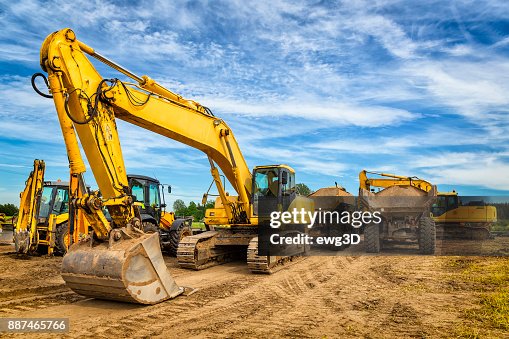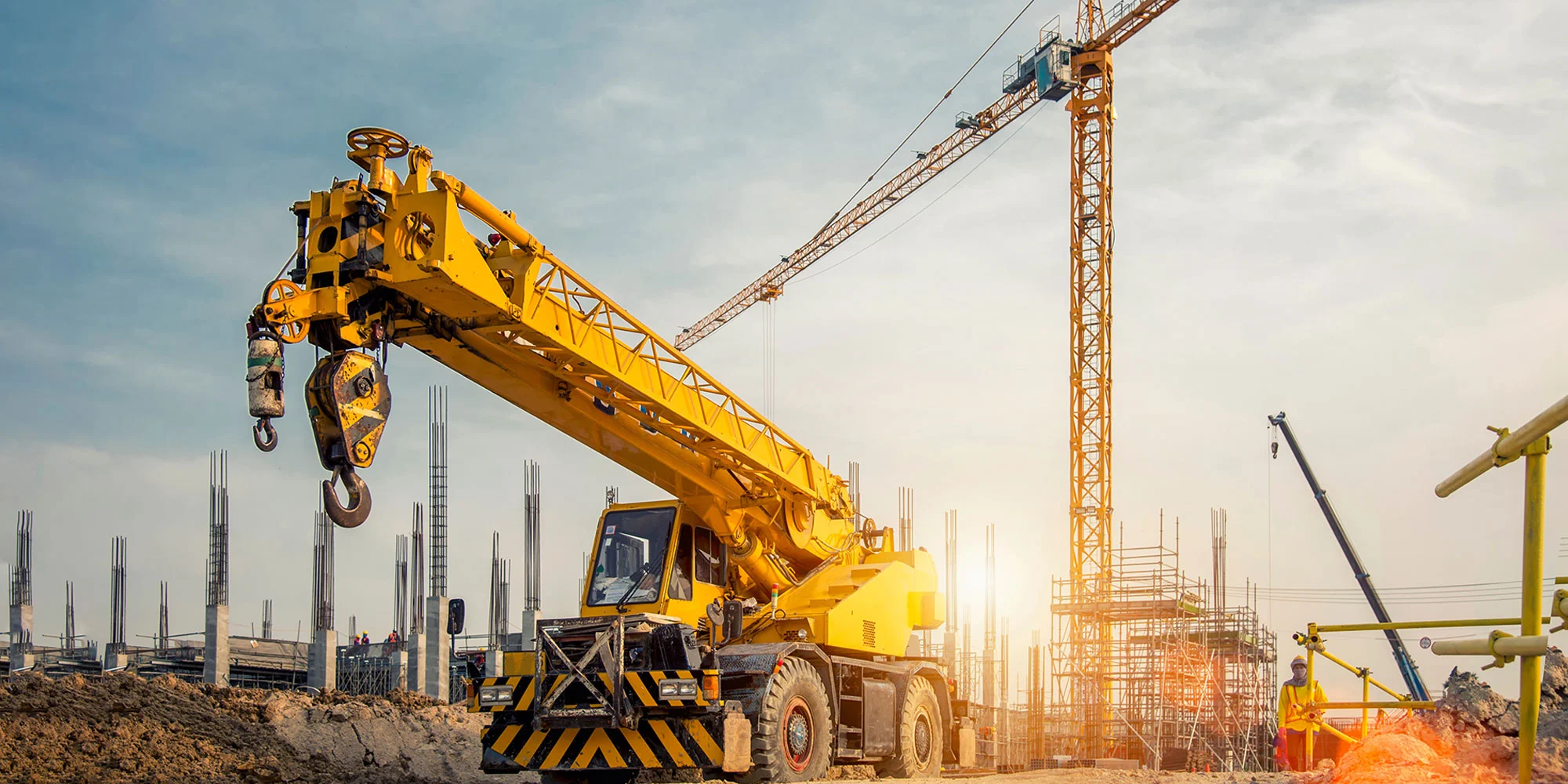Dozer Rental in Tuscaloosa AL: Trusted and Affordable Heavy Machinery
Checking Out the Financial Conveniences of Leasing Building Devices Contrasted to Owning It Long-Term
The decision in between renting out and owning building and construction equipment is crucial for financial administration in the industry. Leasing deals prompt expense financial savings and functional flexibility, enabling companies to allocate sources extra effectively. On the other hand, ownership includes considerable long-lasting economic commitments, including upkeep and depreciation. As contractors evaluate these choices, the influence on money flow, task timelines, and modern technology access becomes progressively considerable. Understanding these nuances is crucial, especially when taking into consideration how they line up with specific task requirements and economic strategies. What variables should be focused on to make sure optimal decision-making in this complex landscape?

Expense Contrast: Renting Out Vs. Owning
When evaluating the monetary implications of renting out versus owning construction tools, a complete cost contrast is important for making notified choices. The selection in between possessing and renting can considerably impact a firm's bottom line, and understanding the associated expenses is essential.
Leasing building and construction devices usually involves reduced ahead of time expenses, allowing services to assign capital to other functional needs. Rental arrangements usually consist of flexible terms, allowing business to access progressed machinery without lasting dedications. This flexibility can be particularly beneficial for short-term tasks or changing work. However, rental costs can build up with time, possibly going beyond the expenditure of ownership if devices is required for a prolonged duration.
Alternatively, owning construction tools calls for a significant preliminary financial investment, along with ongoing costs such as depreciation, funding, and insurance. While ownership can result in long-lasting financial savings, it likewise locks up resources and might not provide the same level of versatility as leasing. In addition, owning tools requires a commitment to its application, which may not always align with job demands.
Inevitably, the decision to rent or have must be based on an extensive evaluation of certain project demands, monetary ability, and long-term strategic goals.

Maintenance Duties and costs
The selection in between possessing and renting out construction tools not just involves monetary factors to consider but likewise includes ongoing maintenance expenditures and responsibilities. Possessing devices needs a significant commitment to its upkeep, that includes routine evaluations, fixings, and prospective upgrades. These obligations can quickly accumulate, bring about unexpected expenses that can strain a spending plan.
On the other hand, when renting devices, maintenance is usually the duty of the rental company. This setup permits service providers to stay clear of the financial worry associated with deterioration, as well as the logistical challenges of scheduling repairs. Rental agreements frequently consist of arrangements for upkeep, suggesting that specialists can concentrate on completing tasks instead than fretting about tools condition.
In addition, the diverse series of tools offered for rent allows companies to select the most recent models with innovative modern technology, which can improve efficiency and efficiency - scissor lift rental in Tuscaloosa Al. By going with rentals, companies can stay clear of the long-lasting responsibility of equipment depreciation and the associated upkeep frustrations. Inevitably, examining upkeep costs and duties is important for making an educated decision regarding whether to rent out or have building and construction equipment, significantly affecting general task costs and functional performance

Depreciation Effect On Possession

A substantial element to take into consideration in the decision to have construction devices is the impact of devaluation on overall possession costs. Depreciation represents the decrease in value of the equipment in time, influenced by aspects such as use, wear and tear, and improvements in innovation. As devices ages, its market price decreases, which can considerably impact the proprietor's monetary placement when it comes time to trade the equipment or sell.
For building companies, this devaluation can convert to significant losses if the tools is not utilized to its fullest capacity or if it lapses. Owners have to account for depreciation in their financial estimates, which can result in greater total prices compared to renting out. Additionally, the tax implications of devaluation can be intricate; while it might provide some tax obligation advantages, these are frequently balanced out by the fact of sell heavy equipment reduced resale value.
Inevitably, the concern of devaluation emphasizes the significance of understanding the long-term financial commitment associated with owning construction devices. Business must very carefully review just how frequently they will utilize the devices and the potential financial influence of depreciation to make an informed choice regarding ownership versus leasing.
Economic Flexibility of Leasing
Renting out construction devices provides considerable monetary versatility, enabling business to allocate resources much more effectively. This flexibility is especially vital in a market identified by varying project needs and varying workloads. By choosing to rent, organizations can prevent the significant funding outlay required for buying tools, preserving capital for other functional requirements.
Furthermore, leasing devices makes it possible for firms to tailor their equipment selections to certain project requirements without the long-term dedication related to ownership. This suggests that companies can quickly scale their tools stock up you could look here or down based upon awaited and existing task demands. Subsequently, this adaptability reduces the risk of over-investment in machinery that may end up being underutilized or outdated gradually.
One more economic benefit of renting out is the possibility for tax benefits. Rental repayments are usually considered operating costs, permitting for prompt tax obligation reductions, unlike devaluation on owned and operated equipment, which is spread over a number of years. scissor lift rental in Tuscaloosa Al. This instant cost acknowledgment can additionally boost a business's money setting
Long-Term Job Factors To Consider
When examining the long-term demands of a building business, the choice between renting and possessing tools ends up being a lot more complex. For jobs with extended timelines, buying equipment may appear advantageous due to the capacity for reduced overall expenses.
In addition, technological improvements posture a significant consideration. The building and construction industry is developing swiftly, with new devices offering enhanced performance and security attributes. Leasing permits companies to access the current technology without devoting to the high upfront expenses linked with acquiring. This flexibility is particularly valuable for companies that manage diverse projects needing various sorts of equipment.
Moreover, monetary stability plays a crucial duty. Owning tools frequently involves significant capital expense and devaluation worries, while renting permits for even more predictable budgeting and capital. Inevitably, the option between renting out and having should be straightened with the critical goals of the construction service, taking into account both anticipated and existing job needs.
Final Thought
In verdict, renting construction devices supplies substantial monetary advantages over long-lasting possession. Inevitably, the choice to rent out instead than very own aligns with the vibrant nature of construction jobs, enabling for versatility and accessibility to the most recent tools without the financial burdens associated with ownership.
As equipment ages, its market value reduces, which can dramatically influence the proprietor's financial position when it comes time to trade the devices or market.
Renting out building and read construction equipment provides considerable economic adaptability, allowing business to allot resources much more successfully.Additionally, renting tools makes it possible for firms to tailor their devices selections to details project demands without the long-lasting dedication linked with possession.In verdict, renting construction tools supplies substantial financial benefits over lasting possession. Ultimately, the choice to rent out instead than own aligns with the vibrant nature of building jobs, allowing for adaptability and access to the most recent tools without the monetary concerns associated with ownership.